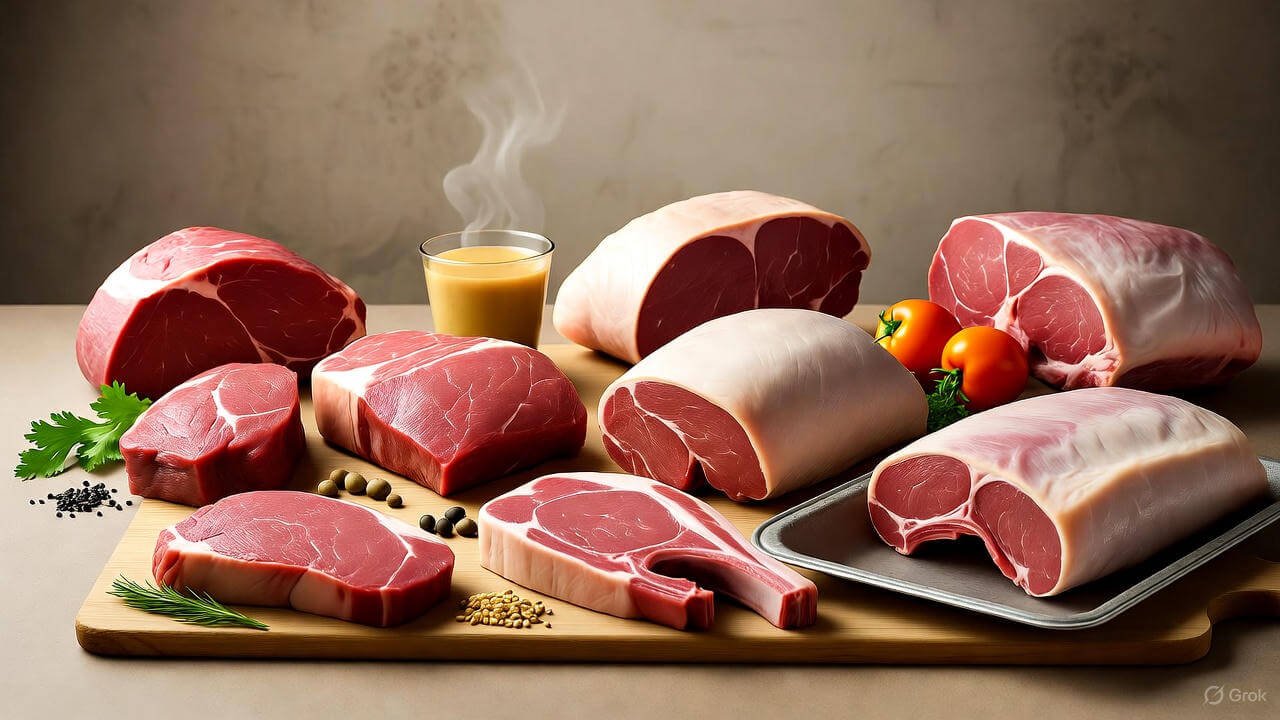Halal certification is far more than a simple label; it is a sacred assurance of quality, integrity, and compliance with Islamic dietary law (Shariah). For businesses in the United States, obtaining this certification is a strategic necessity that grants access to millions of Muslim consumers and aligns with a global movement toward ethical, clean food production. This certification confirms that meat products are prepared in full compliance with these standards, from the humane treatment of the animal to the final packaging.
Why Halal Certification is Vital for U.S. Businesses
The American consumer base is increasingly diverse, and the Muslim population in the U.S. represents a significant and rapidly growing market segment. These consumers require confirmation that their meat products strictly adhere to Halal principles. For a business, this translates into a powerful competitive advantage.
A product bearing a recognized Halal mark instantly builds trust and credibility with Muslim consumers who prioritize religious compliance in their food choices. Beyond domestic sales, a globally accepted certification is the passport to lucrative international markets, making it a critical step for expansion. This certification signals a commitment to ethical sourcing and rigorous hygiene, qualities that also resonate strongly with a broader base of health-conscious, non-Muslim consumers.
Halal Meat Requirements: The Foundation of Compliance
The process of achieving certification is built upon strict and verifiable halal meat requirements. These standards are comprehensive, covering the entire supply chain to ensure the final product is permissible for Muslim consumption.
1. The Source and Welfare of the Animal
Compliance begins long before the slaughter. Animals must be fed a permissible diet and kept healthy. Islamic law dictates humane treatment throughout the animal’s life, ensuring they are free from stress and injury. The animals must be alive and healthy at the time of slaughter.
2. The Zabiha Slaughter Method
The Zabiha method is the central pillar of halal meat certification. This requires the following strict criteria:
- The Slaughterer: The person performing the slaughter must be a sane, adult Muslim, who is trained in the proper Halal procedure.
- Invocation: The name of Allah (Tasmiyyah) must be pronounced immediately before each individual slaughter. This serves as a dedication of the act.
- The Cut: A swift, deep incision must be made across the animal’s neck, severing the trachea, esophagus, and both jugular veins and carotid arteries with one continuous motion. This method is designed to be the quickest and most humane form of stunning-free slaughter, facilitating a rapid drainage of blood.
3. Prevention of Contamination
Following Zabiha, the meat must be processed and handled without any risk of cross-contamination from non-Halal (Haram) substances. This is especially crucial for halal meat certification USA where facilities may process both Halal and non-Halal products. Strict protocols must be in place, including:
- Segregation: Dedicated storage, processing lines, and equipment for Halal-certified products.
- Sanitation: Thorough and Islamically compliant cleaning of all shared equipment and surfaces to remove any trace of prohibited substances like pork derivatives or alcohol.
- Ingredients: All marinades, flavorings, and processing aids used must be Halal-certified themselves.
The Halal Certification Process: A Step-by-Step Approach
Securing an official halal meat certificate involves a systematic, multi-stage audit carried out by an accredited and reputable Halal certifying body.
Step 1: Application and Documentation Submission
The business initiates the process by submitting a detailed application to the certifying agency. This includes comprehensive documentation of the facility, product ingredients, supplier information, production flowcharts, and cleaning protocols. Transparency is key during this phase, as all components must be accounted for and verified.
Step 2: Ingredient and Raw Material Review
The Halal certification specialists meticulously review every ingredient and raw material source to confirm compliance. This often involves checking supplier certificates and conducting ingredient testing to rule out the presence of Haram elements.
Step 3: On-Site Audit and Inspection
A trained Halal inspector will conduct a physical audit of the facility. The inspector verifies the documented procedures against real-world operations, focusing intensely on the slaughter process (for slaughterhouses), separation protocols, sanitation standards, and overall adherence to Halal requirements in handling and storage.
Step 4: Staff Training and Compliance
Halal certifying bodies often require staff training to ensure employees fully understand the standards and their role in maintaining Halal integrity on a day-to-day basis. This ensures sustained compliance beyond the initial inspection.
Step 5: Issuance and Monitoring
Upon successful completion of the audit and any required corrective actions, the official Halal certificate is issued. This certificate is typically valid for one year and must be renewed, involving periodic monitoring audits to guarantee ongoing adherence to standards.
Halal Certification Services for Meat Export and Processed Products
For U.S. companies looking to enter global markets, the certification must be internationally recognized. Export markets often have specific Halal standards that must be met. Working with specialized halal certification services for processed meat export is essential, as these services possess the expertise to navigate the regulatory requirements of countries like Malaysia, Indonesia, and the Gulf nations. This specialized knowledge ensures the certification is accepted by the destination country’s authorities, allowing smooth entry into foreign markets.
Similarly, obtaining halal certification services for meat export from an accredited body ensures that all facets of the export process—from refrigerated shipping containers to labeling—maintain Halal integrity across borders.
The Role of Oversight and Integrity
The credibility of a Halal certification relies entirely on the integrity of the certifying organization. Companies must partner with bodies that uphold the highest religious and professional standards. For decades, organizations have worked tirelessly to bring transparency and standardization to the industry. For instance, Halal Watch World plays a significant role in promoting the highest standards, offering certification and training services that meet or exceed global benchmarks. Their commitment to integrity helps manufacturers confidently assure consumers of genuine Halal compliance.
In conclusion, for any meat business seeking sustained growth and consumer loyalty, the path forward includes achieving and maintaining Halal certification. This commitment confirms religious compliance, enhances food safety standards, and strategically positions the company for success both domestically and on the global stage.
Read more exciting blogs on customdailydiet.com






